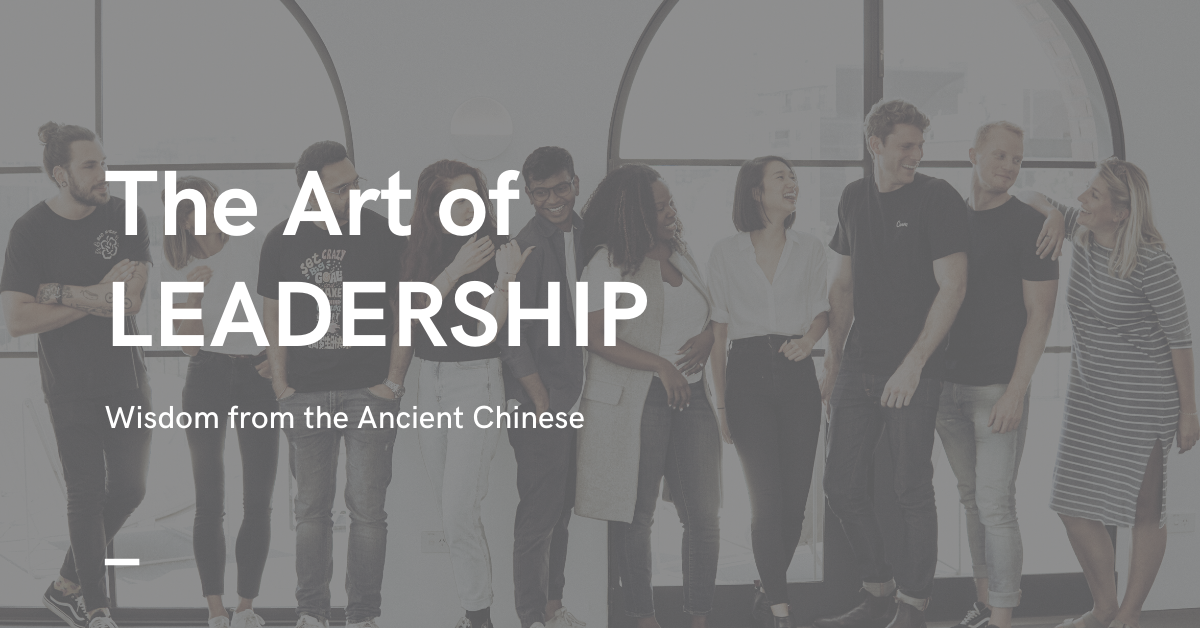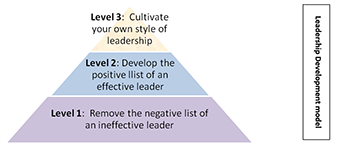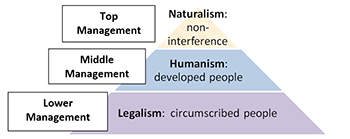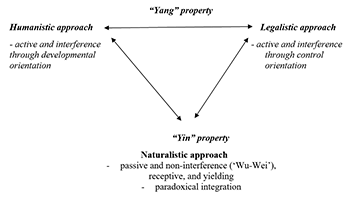
In examining the evolution of Chinese culture and philosophy of life in the past 4000-5000 years, there are specific strengths and weaknesses. However, it is relatively meaningless to glorify the powers and criticize the shortcomings of the past. An excellent and living culture is a culture that subjects to change by continually interacting with the environment.
Chinese culture is one of the longest shared cultures on earth. The Chinese writing system found about 4,000 years ago known through the discovery by archaeologists in which writings were inscribed on bones. The Chinese have started to develop the ability to make pottery to store food and drink in about 4,000 to 5,000 years ago. It was back over 2,000 years ago that imperial dynastic system of government was first formed. Between 770 and 221 BC, China experienced a long period of warring state – approximately 550 years which can be considered the “Renaissance of the Chinese”. It was during this chaotic period that two great philosophers, Laozi and Confucius were born. In the Chinese community, there is a proverb that says, “It is the right environment that creates a hero and not the hero that creates the environment”. Thus, when China was in a chaotic period, great thinkers were born.
The ancient Chinese philosophers and thinkers fully subscribed to the importance of good leadership, especially the wisdom of a ruler or leader. Ancient philosophers reviewed the wisdom of a wise ruler extensively. They believed that a good leader should have the foundation of moral authority with the setting of a virtuous example for his subordinates to follow.
“Great capability can either cause great good or great harm if it is not properly circumscribed by the right morality and virtue.”
In ancient China, education emphasized on teaching people to be wise rather than teaching people to be smart or skilful. A typical Chinese saying is, “Learn to live like wise men.” It is about using what we have learnt and our wisdom to respond to the changing environment.
“A word of wisdom from a Sage is far superior to ten years of education.”
According to the School of Humanism espoused by Confucius and Mencius, humanity is the core of all human races. The School of Humanism endorsed the virtues of righteousness and benevolence to a leader to be effective.
On the other hand, the School of Legalism, scholars Xunzi and Han Feizi emphasized that a leader must occupy the top position of a power hierarchy to execute strict discipline and the penal code effectively. To Xunzi and Han Feizi, the roots of a man’s evil nature are his selfishness and greed.
To add on, the School of the Hundred Thoughts, Naturalism put forward by Laozi, to naturalistic, a wise leader is characterized as having a profound understanding, with deep insights into nature and humans. He can perceive the principles of nature and their application. Wisdom, according to the natural approach, includes:
- Self-knowledge and self-understanding
- Understanding and being able to see the interconnectedness of things
- Keeping a holistic thinking
- Use of soft-thinking.
- Use of paradoxical thinking in enhancing creativity in the digital age.
The above three schools of thoughts arose during the long period of warring state in China as per Table 1.
Table 1: The three (3) School of Thoughts
|
No. of Years |
Period |
Dynasties |
Chinese Philosophers (3 schools of thoughts) |
|
400 |
2500-2100 BC |
The Five Emperor (Huangdi, Zhuan Xu, Di Ku, and Shun) |
Confucianism (Humanism) Confucius – 551-479 BC Mencius - 372 – 289 BC
Legalism Xunzi- 313 BC - 238 BCBased on the review of the three primary schools of thoughts, a tentative conceptual framework was developed as per diagram 1. Han Fei Zi - 280 B.C (born)
Daoism (Naturalism) Lao Zi - 5th century B.C. Zhuang Zi – 3rd to 4th century B.C.
|
|
500 |
2100 – 1600 BC |
Xia (the founder, Yu the Great) |
|
|
500 |
1600 – 1100 BC |
Shang |
|
|
330 |
1100 – 771 BC |
Western Zhou |
|
|
550 |
770 – 221 BC |
Eastern Zhou, Spring & Autumn Period and the Warring States |
|
|
14 |
221 – 207 BC |
Qin (1st Emperor of China ) |
Theory of leadership
Based on the review of the three primary schools of thoughts, a tentative conceptual framework was developed as per diagram 1.
 Diagram 1: Conceptual Framework
Diagram 1: Conceptual Framework
At level 1: Remove the negative list of an ineffective leader
At level 2: Develop the positive plan of an effective leader
At level 3: Cultivate your style of leadership based on your personality, preference and experience
The ultimate purpose of the cultivation of a leader depends on his/her reflection and the concept of ‘self-called Authentic Leadership which described as original, unique and free flow. Based on some literature review of the ancient Chinese three primary schools of thoughts of legalism, humanism and naturalism, a 3-level leadership model has been put forward as per Diagram 2.
 Diagram: A Three-Level Leadership Model
Diagram: A Three-Level Leadership Model
The 3-level leadership model categorized the “Yang” property and the “Yin” properties of the leadership qualities and characteristics as per Diagram 3.
 Diagram 3: Classical Leadership Qualities Framework
Diagram 3: Classical Leadership Qualities Framework
In conclusion, good leadership and management should embrace -
“If you want one year of prosperity, motivate people.
If you want ten years of prosperity, build structures and systems.
If you want one hundred years of prosperity, develop a corporate culture.”
Learn more from our 2-day The Art of Leadership* course as we will go into the detail on how wisdom is an integration of intelligence with experience and integration of science and philosophy.
The article is contributed by Dr Sheh Seow Wah, an Associate Trainer at the Management Development & Consultancy, MDIS’ Corporate Training Arm.